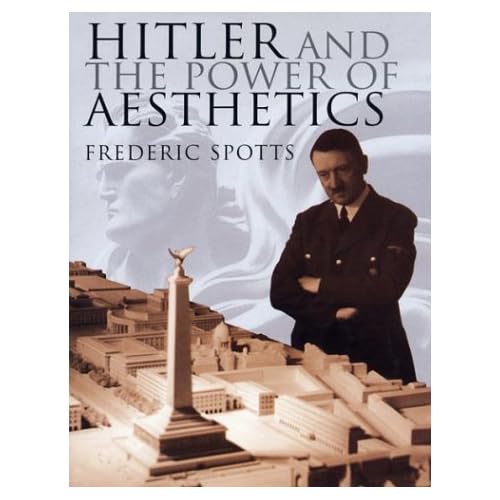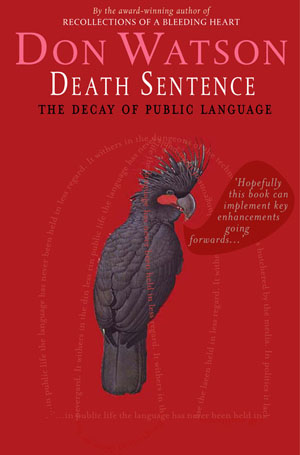Author! Author! - David Lodge
 Somewhat disappointing this compared to Lodge's other rather more colourful and witty novels (which I've been reading with increasing interest), the subject this time is turn-of-the-century author Henry James's ultimately unsuccessful foray into writing for the theatre, and his difficulty in reconciling the commercial failure of his own tendentious writing for both theatre and novel with the outstanding trans-Atlantic success of a friends's pot-boiler about love and lust in bohemian Paris. It does encourages further reading of those rather stodgy but linguistically interesting psychological novels of James's, but not with any expectation of serious enjoyment.
Somewhat disappointing this compared to Lodge's other rather more colourful and witty novels (which I've been reading with increasing interest), the subject this time is turn-of-the-century author Henry James's ultimately unsuccessful foray into writing for the theatre, and his difficulty in reconciling the commercial failure of his own tendentious writing for both theatre and novel with the outstanding trans-Atlantic success of a friends's pot-boiler about love and lust in bohemian Paris. It does encourages further reading of those rather stodgy but linguistically interesting psychological novels of James's, but not with any expectation of serious enjoyment.A History of Western Philosophy: The Twentieth Century to Quine and Derrida - W.T. Jones
 Inspired sufficiently by Lodge's efforts on behalf of Henry James, and made curious by the brief references to his brother William to reacquaint myself with his own work, I've been reading again Jones's masterful summary of the failure of twentieth-century philosophy (a failure well summed up in the title, to my mind) in order to refresh myself with what William James had to say about psychology and certainty (or lack thereof).. Wikipedia however ultimately proved more fruitful in that task:
Inspired sufficiently by Lodge's efforts on behalf of Henry James, and made curious by the brief references to his brother William to reacquaint myself with his own work, I've been reading again Jones's masterful summary of the failure of twentieth-century philosophy (a failure well summed up in the title, to my mind) in order to refresh myself with what William James had to say about psychology and certainty (or lack thereof).. Wikipedia however ultimately proved more fruitful in that task: James defined true beliefs as those that prove useful to the believer...Nothing like using a 'razor' to remove a whole swathe of human knowledge, is there?
James' assertion that the value of a truth depends upon its use to the individual who holds it is known as pragmatism. Additional tenets of James' pragmatism include the view that the world is a mosaic of diverse experiences that can only be properly understood through an application of "radical empiricism." Radical empiricism, distinct from everyday scientific empiricism, presumes that nature and experience can never be frozen for absolutely objective analysis, that, at the very least, the mind of the observer will affect the outcome of any empirical approach to truth since, empirically, the mind and nature are inseparable.Etc. "Never," by the way, is said with the certainty which James himself says is not possible, but as with many of the twentieth-century's sorry excuses for philosophers, such a conundrum never seemed to bother him. It's obviously "true" since he wanted it to be so, and by virtue of asserting it to be true he fashioned a career, which undoubtedly proved useful to him (if not to his students). So much, anyway, for pragmatism as a guide to "truth."
Hitler and the Power of Aesthetics - Frederic Spotts
 Some years ago when a television mini-series featured the relationship between Hitler and his architect Albert Speer, a friend commented that he was pleasantly surprised at the thing. "I'd thought it would be about as useful as a film about Hitler's milkman," said my friend, "but it proved to have remarkable insight." So it did. This book is the same. Too little historical account is taken of the fact that Hitler was and saw himself as an artist -- not a very good one, however, but it was an artist he began his work. Says Spotts, "His aesthetic nature, his conviction that the ultimate objective of political effort should be artistic achievement and his dream of creating the greatest culture state since ancient time, or perhaps of all time," this is what the book has as its focus.
Some years ago when a television mini-series featured the relationship between Hitler and his architect Albert Speer, a friend commented that he was pleasantly surprised at the thing. "I'd thought it would be about as useful as a film about Hitler's milkman," said my friend, "but it proved to have remarkable insight." So it did. This book is the same. Too little historical account is taken of the fact that Hitler was and saw himself as an artist -- not a very good one, however, but it was an artist he began his work. Says Spotts, "His aesthetic nature, his conviction that the ultimate objective of political effort should be artistic achievement and his dream of creating the greatest culture state since ancient time, or perhaps of all time," this is what the book has as its focus.It's truly revealing, including as it does an account not just of Hitler's self-serving view of art's relationship to the State, but also of how Hitler's own grandiloquent but barren aesthetics infected a whole generation of German artists, architects, musicians and artistic expression, and how ultimately it was as an "artist of destruction" he will be remembered. An insightful look into a much-neglected aspect of evil.
Death Sentence: The Decay of Public Language - Don Watson
 Quite the opposite of what you might expect after the preceding title, Watson bemoaons the effect that bureaucracy and rampant illiteracy has had and is having on language. From the flyleaf:
Quite the opposite of what you might expect after the preceding title, Watson bemoaons the effect that bureaucracy and rampant illiteracy has had and is having on language. From the flyleaf:When was the last time you heard a politician use words that rang with truth and meaning? Do your eyes glaze over when you read a letter from you bank? When your employer tells you to make a commitment going forwards, or speaks of enhancing the bottom line, does your mind shut down?
Buzzwords, jargon, bullet-points instead of argument, the 'verb famine and 'noun pile-ups' and the inflation of cliche, drivel and weasel-words to regular occurrence. "Every day we are confronted with a debased, depleted sludge." Watson's book sets out to combat this all-encompassing irrationalism, and while not quite as witty as it should be, and not quite as useful as Richard Mitchell's similar but more meaty Less Than Words Could Say, it is nonetheless in the right spirit. Henry James would have approved, except perhaps for it having just a mite too much colour for that genteel old gentleman.
[NB: All links above are to US editions available on Amazon. Covers and some titles may differ slightly.]
RELATED: Books, Art, History, Philosophy
3 comments:
You know, if Pragmatics was the current paradigm of philosophical enquiry, then you might have a point. However, as pragmatics is contentious and controversial (especially with necessitarian views on the rise again) the usual Strawman you construct in reference to Philosophy once again does no work and just shows that you don't really understand what Philosophy is.
You know, Anonymous, if I'd said that "Pragmatics was the current paradigm of philosophical enquiry" not only would I have shot myself for using the word "paradigm" -- and earned the approbation of author Don Watson -- but your criticism would have held water.
But I didn't.
And are you suggesting that determinism is back in vogue, and that somehow this should satisfy me?
Ah, literalism, the usual retort of an Objectivist.
Anyway, what's wrong with the term 'paradigm?' Or do you prefer Research Programme? Either way, Kuhn and Lakatos do provide a good description of the historical processes of rationale enquiry and change.
As for determinism being back in vogue... Well, as a materialist determinist I would, of course, argue that it has never been out of vogue, but as various forms of compatibilism are currently popular I may be currently old fashioned and all old hat. Necessitarianism, however, isn't determinism. Necessitarianism is the idea that the laws of nature are prescriptive rather than descriptive (which is, in itself, a can of worms as it requires making decisions as to whether the laws of nature we use in everyday scientific enquiry are indicative of what is really going on in the background or merely descriptions of best fit).
No, my problem with your post was the whole rhetoric-masquerading-as-argument: 'I've been reading again Jones's masterful summary of the failure of twentieth-century philosophy (a failure well summed up in the title [A History of Western Philosophy: The Twentieth Century to Quine and Derrida], to my mind).' I'm not sure what your problem with Quine might be so I'll assume your barb was aimed at Derrida, a philosopher who is not well understood but analytic philosophers (and, admittedly, not much admired by his own continental ilk) but who should very definitely not be associated with Quine and who is also not the end result of twenieth century philosophy (at least, not in the analytic tradition; I'd place David Lewis as the exemplar of the last century, if only because his work on causation and counterfactuals has been so beneficial).
Which, in closing, reminds me to add that Pragmatics has moved on considerably from James. Davidson is the best figure to read on at the moment; his work on describing intentionality to agents is hard going but very rewarding as it gets the Psychology out of the story and places it were it belongs; on a fire somewhere behind the Science Block.
Post a Comment